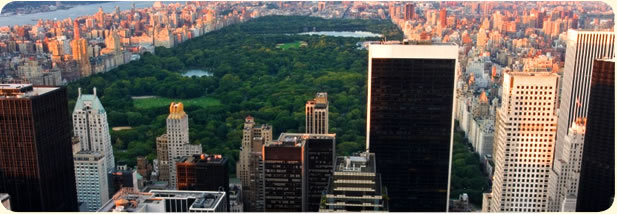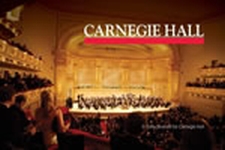Carnegie Hall almost needs no introduction. It is one of the world’s most prestigious venues for music of many kinds. It opened officially in May 1891 with an inaugural concert conducted by Walter Damrosch and Pyotr Ilyich Tchaikovsky. Originally simply named ‘Music Hall,’ it changed names in 1893 only after its founder, philanthropist Andrew Carnegie, was convinced to put his name in the title. The Hall was owned by the Carnegie family until 1925, when it was sold to developer Robert E. Simon.
The Hall was originally intended for use by the Oratorio Society of New York and New York Symphony Society, and was subsequently used a great deal by the New York Philharmonic, among many other organizations. As the music industry changed and the recording industry boomed, in the 1950s, it seemed very unlikely that New York City could support two major performance venues (the other being Lincoln Center); by 1960 Carnegie Hall was slated for demolition to make way for a commercial skyscraper. After pressure by numerous artist residents led by violinist Isaac Stern, legislation was passed allowing the city of New York to purchase the venue from Simon. In 1962 Carnegie Hall was designated a National Historical Landmark.
The performers every season at Carnegie Hall include the brightest lights in the world of classical music, as well as world, pop and jazz. The concert season comprises mainly classical music in many forms; concert series are divided into orchestral, chamber music, recitals (often featuring solo vocalists and instrumentalists), early and contemporary music. Each season Carnegie Hall also produces a festival with a theme exploring a particular musical culture, movement, or an important figure in music history. The Weill Institute is Carnegie Hall’s educational component, offering numerous school and professional programs, as well as community and family events aimed at spreading the appreciation of music far and wide throughout greater New York’s vast community.
Carnegie Hall Information
- Venues: Isaac Stern Auditorium/Ronald O. Perelman Stage, Joan and Sanford I. Weill Recital Hall, and Judy and Arthur Zankel Hall
- Public Transportation: Excellent (easily accessible by subway lines N, Q, and R at 57th Street/7th Avenue; B, D, and E at 7th Avenue; F at 57th Street; and buses M5, M7, M20, M31, M57, and M104)
- Handicapped Accessibility: Good
- Performances/Programs: Carnegie Hall is a premiere venue for classical and chamber music, as well as pops, jazz, world, and folk
- Ticket Prices: Vary based on program. $10 Rush tickets for students and seniors are available for some shows. $10 tickets for Weill Recital Hall events sold one hour before concert times. $10 partial view tickets sold to general public on the day of performance at noon
- Group Discounts: Discounts available for groups of 20 or more
- Subscriptions: Numerous concert packages available, starting at $89. Subscriber benefits include free ticket exchanges, discounts on restaurants and shops, a 10% discount in the gift shop, reduced-rate parking, and ticket transfers and replacement
- Membership: Membership starts at $100. Benefits include advance ticket purchase, working rehearsal passes, half-price offers, invites to member events, 50% tour discounts, and a 10% discount at the Shop at Carnegie Hall
- Educational/Community Outreach: Carnegie Hall runs numerous educational programs through its Weill Music Institute, including family concerts, professional training workshops, a fellowship program, and music classes.



